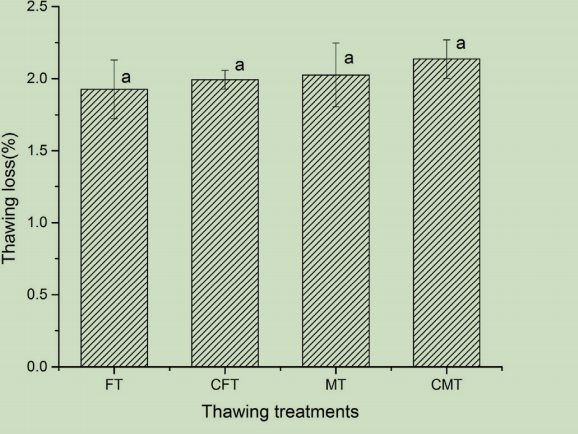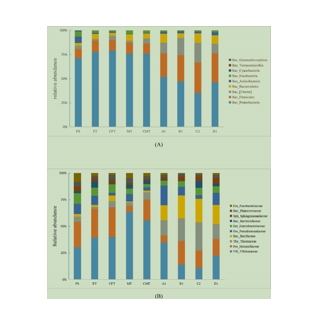文献:
The effects of CS@Fe3O4 nanoparticles combined with microwave or far infrared thawing on microbial diversity of red seabream (Pagrus major) fillets based on high-throughput sequencing
文献链接:
https://www.sciencedirect.com/science/article/abs/pii/S0740002020301003
作者:
Luyun Cai , Yufei Dai , Ailing Cao , Minjie Cao
相关产品:
原文摘要:The present study investigated the effects of CS@Fe3O4 nanoparticles combined with microwave or far infrared thawing on microbial diversity of red seabream (Pagrus major) fillets in terms of thawing loss, pH, TVB-N, classical microbiological enumeration and high-throughput sequencing, and the same parameters were also studied for 24 h after thawing. Four thawing methods were used: microwave thawing (MT), far-infrared thawing (FT), CS@Fe3O4 nanoparticles combined with microwave thawing (CMT) and CS@Fe3O4 nanoparticles combined with far-infrared thawing (CFT). The results showed that CFT and CMT had lower values of pH and TVB-N compared to the FT and MT. Based on conventional microbial count analysis, CFT and CMT samples also maintained lower TVC, pseudomonas and LAB counts. Using high-throughput sequencing analysis, Compared with FT and MT, CFT and CMT samples showed a significant decrease in the proportion of the Pseudomonadaceae flora. However, the proportion of Pseudomonas, Bacillaceae and Thermaceae also increased significantly after 24 h of storage, which indicated that become the predominant microbiota in red seabream (Pagrus major) fillets.
CS@Fe3O4纳米颗粒结合微波或远红外解冻的应用较广,将CS@Fe3O4纳米颗粒与微波或远红外解冻相结合,可以弥补微波或远红外技术的缺陷。采用两种解冻方法:CS@Fe3O4纳米颗粒结合微波融(CMT)和CS@Fe3O4纳米颗粒结合远红外融(CFT)。

图为:不同解冻方法对红鲷解冻损失(A)、TVB-N (B)的影响。
两种解冻方法具体过程:
将一组冷冻的鱼片放入烧杯中,并加入解冻溶液。确保鱼片完全浸在CSMNP溶液中。之后,烧杯放进微波炉中进行解冻过程。使用温度记录仪传感器进行检测,直到其核心温度结束于0°C。将另一组冷冻鱼片放入烧杯中,加入解冻溶液。为了保证CSMNP溶液的效果,将鱼片完全浸没在溶液中。然后将烧杯放入层析成像柜中。烧杯放进微波炉中进行解冻过程。使用温度记录仪传感器进行检测,直到其核心温度结束于0°C。

图为:基于红鲷鱼片微生物群16 s rRNA基因序列,(A)门和(B)科水平的相对丰度。(A1、B1、C1、D1分别以FT、CFT、MT和CMT表示,分别在4°C冰箱中保存24 h)。
结论:微波或远红外结合CS@Fe3O4纳米颗粒解冻,在两组解冻处理中,CFT组和CMT组的假单胞菌数量较低。解冻后贮藏24 h后,假单胞菌、杆菌科和热科增加,并可能成为优势种。结果表明,CFT和CMT的pH和TVB-N值低。根据常规的微生物计数分析,CFT和CMT样本保持了较低的TVC、假单胞菌和LAB计数。

 2024-12-17 作者:lkr 来源:
2024-12-17 作者:lkr 来源:

